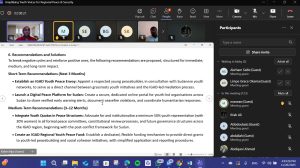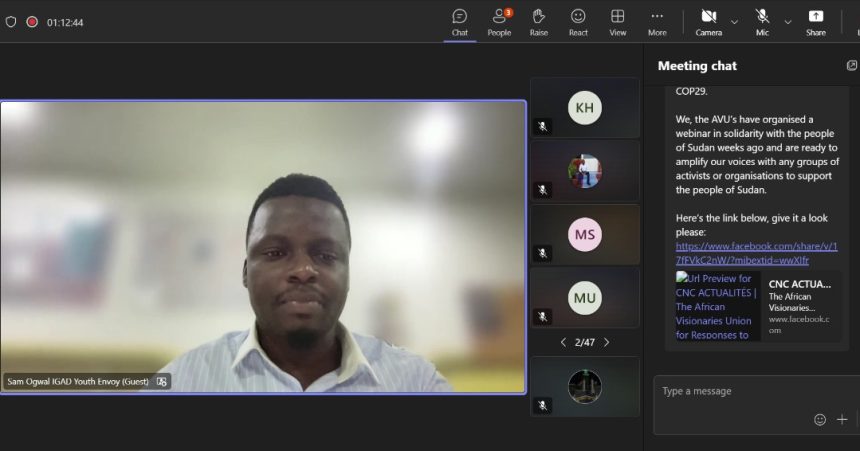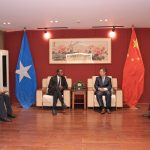MOGADISHU, Somalia – In a decisive move to reshape the geopolitical landscape of the Horn of Africa, youth leaders from across the Intergovernmental Authority on Development (IGAD) region convened on Thursday for a high-level digital summit, culminating in the release of a robust strategic memorandum that demands a direct role in conflict resolution, specifically regarding the deepening crisis in Sudan.
The webinar, titled “Youth Leading Peace and Security in the IGAD Region,” was organized by the IGAD Leadership Academy (ILA) Cohort 2. It brought together policymakers, donor partners, and youth representatives to address the “critical inflection point” facing regional stability.
The central outcome of the gathering was the presentation of the “Memorandum by IGAD Youth on the Situation in Sudan,” a document that serves not merely as a plea for inclusion, but as a structural blueprint for integrating young people into the highest levels of security architecture.
The dialogue marked a significant departure from traditional narratives that often portray youth solely as victims of conflict. Instead, the discussions highlighted that in contexts like Sudan—where the conflict erupting in April 2023 has dismantled formal systems—young people have become the primary agents of resilience.
The memorandum notes that youth networks are currently operating local peace committees, negotiating cross-border dialogues, and delivering humanitarian aid where state mechanisms have faltered. Participants argued that this grassroots capability is a powerful asset that has been historically sidelined in formal peace treaties and recovery frameworks.
A core component of the strategic framework presented is the analysis of “Loops of Peace”—feedback cycles that either stabilize or destabilize the region.
The document details “Negative Loops,” where the systematic exclusion of youth from formal peace processes breeds disillusionment. This alienation creates a vacuum often exploited by armed groups, perpetuating conflict and further marginalizing constructive voices. Conversely, the youth proposed reinforcing “Positive Loops,” demonstrating that investments in youth-led civic education correlate directly with increased community resilience against violence.
Moving beyond rhetoric, the IGAD Youth laid out a series of time-bound, actionable recommendations intended to hold the Secretariat and Member States accountable.
Primary among these is the call for the IGAD Secretariat to appoint an IGAD Youth Peace Envoy for Sudan by March 1, 2026. This proposed envoy would be a respected young peacebuilder tasked with creating a direct channel between the grassroots initiatives on the ground in Khartoum and Darfur and the high-level IGAD mediation teams.
Furthermore, the youth leaders challenged donor partners to operationalize an IGAD Regional Youth Peace Fund. This mechanism is designed to bypass the bureaucratic hurdles that often prevent grassroots organizations from accessing capital, ensuring that flexible grants can reach those maintaining social cohesion on the frontlines.
Looking toward long-term governance, the memorandum advocates for a binding quota in future peace structures. The proposal seeks a minimum of 50% youth representation—with a specific 30% allocation for women—in all formal peace committees and constitutional review processes across the region.
This ambitious target aims to ensure that the demographic reality of the IGAD region, where youth constitute the majority, is reflected in its decision-making bodies.
The summit concluded with a strong message of accountability. The IGAD Peace and Security Directorate has been tasked with coordinating the follow-up, with a progress report on the implementation of these recommendations due within six months.
As the region grapples with complex challenges ranging from climate-induced fragility to protracted warfare, Thursday’s gathering signaled that the next generation is no longer willing to wait on the sidelines. They have presented their roadmap; the onus now shifts to regional leaders to demonstrate the political will to implement it.









